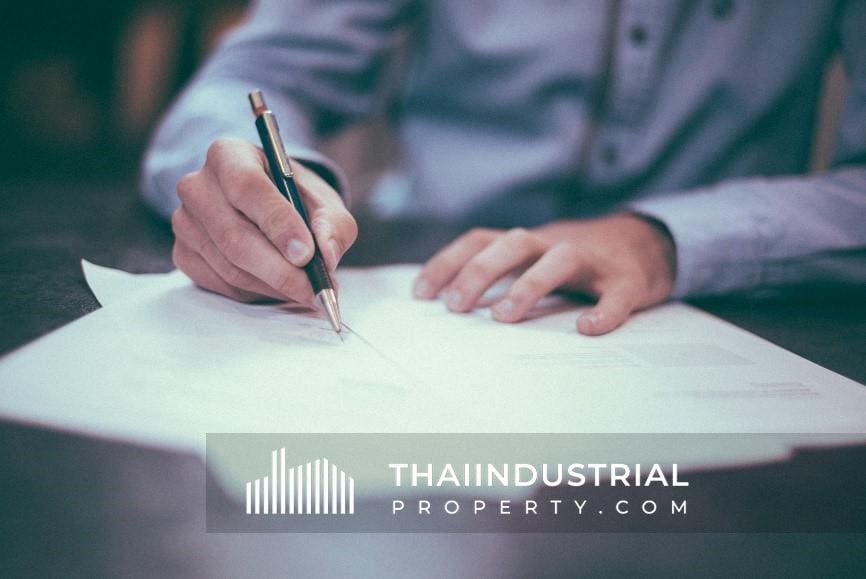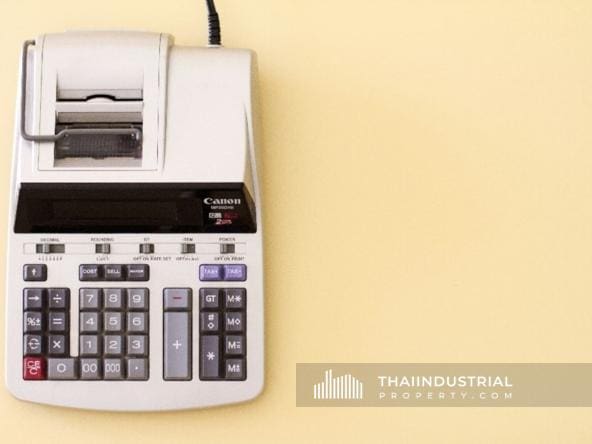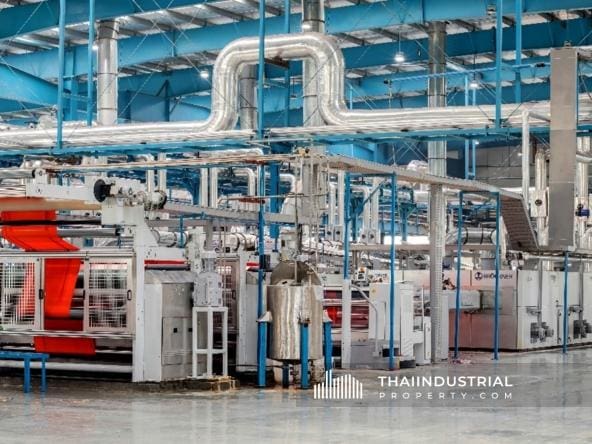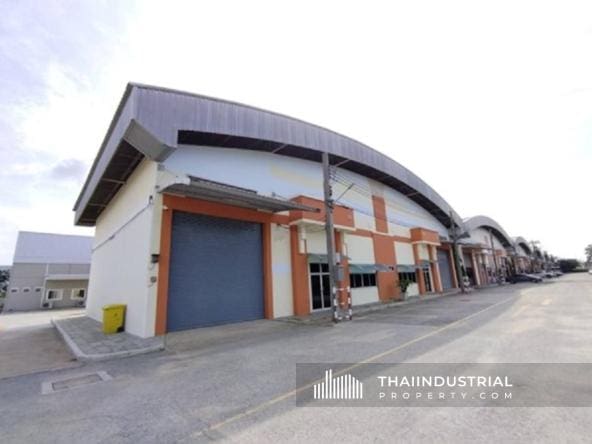Taxes are inevitable costs in operating businesses, and the company must understand the tax payment differences and several rules behind them. As for Thailand, there are tax policies and regulations that require people to take note and proceed with the process accordingly. So, when people start their business in Thailand, they always ask, “what taxes do I need to pay when renting a warehouse or factory?” This article will provide a comprehensive summary of 4 taxes that business owners should know when renting a warehouse or factory in Thailand.
1. Rental withholding tax in Thailand
In a brief explanation, withholding tax refers to the tax processes where the tenants withhold a certain amount of rental fees from the rental provider as part of the tax process. Then, after the tax process, the tenants must issue a withholding-tax certificate to the landlord as a withholding process confirmation. Then, within 7th of the subsequent month after the withholding process, the tenants are required to pay the withholding amount to the Thailand revenue department. What is withholding tax in Thailand? For renting a property, the withholding rate in Thailand is 5% of the monthly fees.
Example A of Withholding Tax in Rental Fees: Company 01 rents a warehouse for its distribution center, and the monthly rental rate is 250,000 THB/month
The tenants withhold 12,500 THB (250,000 x 5%), which is 5% of the rent, and submit this withholding amount to the Thai Revenue Department, and provide the landlord a withholding-tax certificate. As a result, the rental provider will receive a net rental fee after withholding process as 237,500.00 THB/month (250,000-12,500)
Additionally, there is another type of withholding tax in Thailand, which is Withholding Tax in Service fees. The concept is the same as withholding tax for rental fees, but different in the rate. The withholding tax for service fees is 3% of the total service charge. As for the service charge in Thailand, tenants/clients must pay the 7% Value Added Tax (VAT). To provide a comprehensive example, we will use Example B as the extension for the next example.
Example B of Withholding Tax in Service Fees with VAT: the landlord charges a monthly service fee to tenants for 20,000 THB. So, the tenant is required to pay both types of withholding tax fees.
The tenants must withhold 600 THB (20,000 x 3%), and later submit this withholding amount to the Thai Revenue Department. In addition, the tenants are required to add 7% VAT to the service fees, which is 1,400 THB (20,000 x 7%).
Therefore, the tenant is required to pay the net service fees of 20,800 THB (20,000-600+1,400)
In total, for Company 01, they are paying 258,300 THB/month of rental fees and service fees after the withholding process (237,500+20,800).
2. Value Added Tax (VAT)
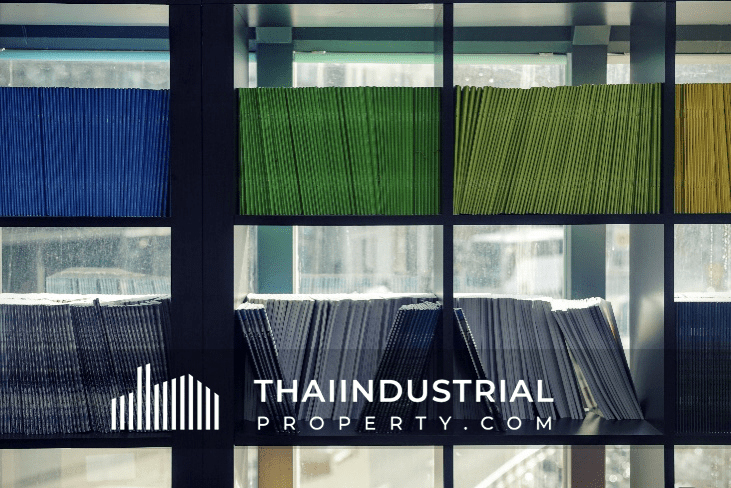
For Value Added Tax (VAT), renting a warehouse or factory in Thailand and other charges is exempted from charging VAT. However, under Thai laws and regulations, in the case of the landlord whose annual revenue exceeded 1.8 million THB, the landlord must charge the 7% VAT to tenants, which is included in the monthly service fees. For reference to 7% VAT charges and how to calculate them, please read Example B for VAT calculation.
3. Land and Property tax
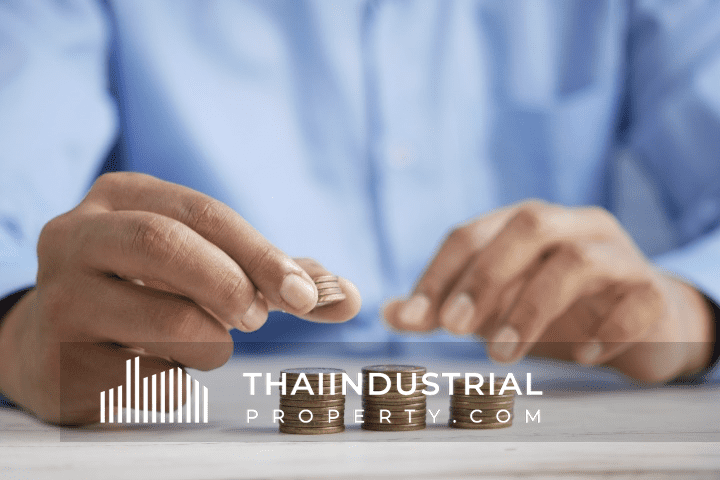
By 2020, there are new regulations and policies for land and property tax in Thailand. The property that is not for agriculture or residential purposes, the landlord or any related individuals are required to pay the land and property tax. The land and property that are included under property tax in Thailand are commercial buildings, unused land plots, stores, warehouses, factories, etc. Here are the simple breakdowns of land and property tax by the value of the property
- For a property with value over 5,000 million THB, the annual tax rate is 0.7% of property value.
- For a property with value from 1,000-5,000 million THB, the annual tax rate is 0.6% of property value.
- For a property with value from 200-1,000 million THB, the annual tax rate is 0.5% of property value.
- For a property with value from 50-200 million THB, the annual tax rate is 0.4% of property value.
- For a property with value less than 50 million THB, the annual tax rate is 0.3% of property value.
For more information on Land and Property Tax: https://news.bloombergtax.com/daily-tax-report-international/insight-new-property-tax-in-thailand-from-2020
4. Stamp Duty and other fees
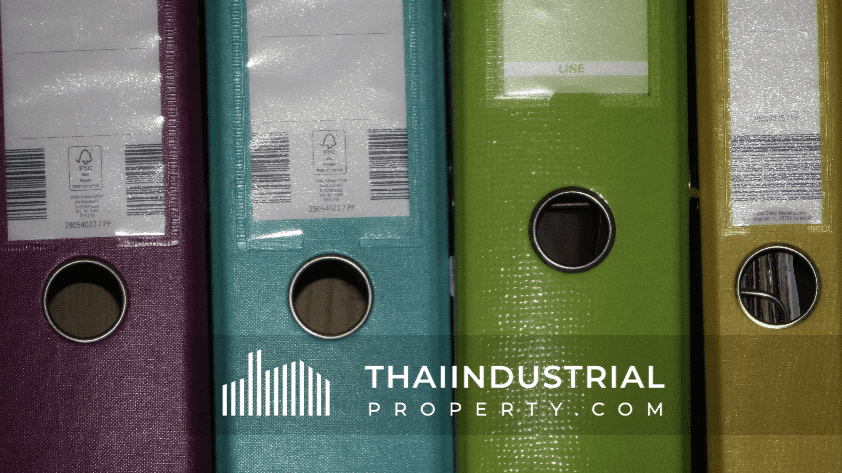
In renting a warehouse and factory in Thailand, the lease contract requires validated stamp duties to be legally acceptable under Thai law. As a result, the government charged a tax rate of stamp duties at 0.1% of the rental fee throughout the rental contract. The payment amount of the stamp duties depends on the rental arrangements and conditions between tenants and landlords.
Example C of Stamp Duty: the landlord is charging a rental fee to tenants on a monthly basis for 250,000, with the agreement on a rental contract of three-year term.
As a result, the tenant will pay the total of 9,000,000 THB (250,000x12x3) in a three-year contract. For Stamp Duty, the tenant requires to pay the 0.1% of the entire rental contract, which is 9,000 THB (9,000,000×0.1%)
In summary, there are four taxes that everyone should know when renting a warehouse or factory in Thailand, as follows: withholding tax, Value Added Tax, Land and Property Tax, and Stamp Duty tax. Each tax serves different purposes and possesses different conditions of payment, so it is crucial for every company to understand the function and process of taxation in Thailand. Did you know? Renting a warehouse and factory in Thailand yields the benefit of tax deduction, which you can learn more about in our articles!
If you are looking to rent warehouses and factories of various sizes from 300sqm to 30,000sqm in Samut Prakan, kindly contact us here.

